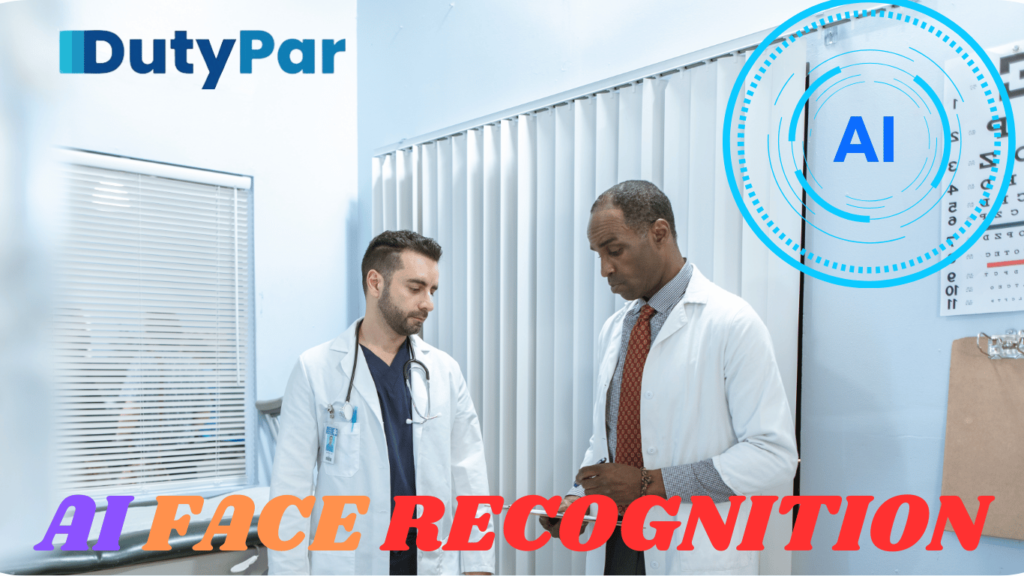
Table of contents
Introduction
AI face recognition technology has revolutionized almost all industries today, with the healthcare sector not being left behind. It has been a game-changer in the medical sector for the last couple of years. The AI-related advance can now provide solutions that enhance patient care, streamline operations in a hospital, and make healthcare an efficient process. There are challenges and ethical considerations to be accounted for.
In this article, we go through some of the potential of AI face recognition in the medical field and the vision it has for healthcare in the future. We also mention how companies like IndoAI, which is one of the leading manufacturers of AI cameras, and DutyPar, which is a software development firm, play a significant role in such technological development.
What is AI Face Recognition?
This method recognizes people by their facial features using algorithms in machine learning. Data about the distance between the eyes, contours of the nose, and the curves of the mouth are captured. These data are then cross-checked with images in a database to enable AI quickly and accurately to identify the face. This technology is being adapted into wide applications in the medical sector, more than the traditional uses for security.
Advantages of AI Face Recognition in Medical Field
Improved Patient Identification
Accurate identification of patients is always essential in hospitals and clinics. Traditional ID cards and wristbands often result in mistakes. AI-based face recognition is the most accurate in identifying patients, thus reducing the chances of mistaken identity and ensuring greater safety.
Meanwhile, it would ease tracking their movement in the hospital, thereby ensuring high quality care
Smoother Registration Process
Delays occur mostly in hospitals when it is time to register patients. One of the most important applications entails AI face recognition. This could hugely assist in the registration process. A patient can be automatically recognized upon arrival at a hospital, thus less paper work and waiting time. The technology enhances patient experience as staff will be freed up for other integral tasks.
Enhanced security for data
AI facial recognition increases the security of medical records. Through facial recognition, the accessing of confidential information is validated, and only persons who have the authority to access classified information are able to retrieve the data. Such security ensures that the privacy of the patient is fully protected and also satisfies the data protection laws.
Checking the Clients’ Conditions
Face recognition AI technology goes beyond mere identification. Sophisticated systems can follow the various conditions of a patient’s health from the features on a face. For example, when the face expression of a patient changes, it is indicative of being in pain or experiencing some discomfort. This will inform the healthcare providers of the possible health issues emerging before they turn to be major problems and at such early interventions.
Contactless Solutions in the Pandemic Era
The COVID-19 pandemic calls for extreme importance of contactless technology in the healthcare setting. Touch-free patient identification may be made possible through AI face recognition; thereby reducing contact and, ultimately, the spread of infection. This is very imperative during check-ins at a busy hospital.
Efficient Resource Management
There is the optimization of hospital resource management using AI face recognition technology. It follows tracking staff movement, patient flow, and access to restricted areas. These analyses enhance the allocation of resources by knowing the patterns of doing things, thereby reducing inefficiencies, cost, and improvement in operations.
Applications of AI Face Recognition in Healthcare
1. Patient Monitoring Systems
Today, most hospitals have been embedding AI face recognition in patient monitoring. This can identify unusual behavior or facial expressions, which indicates distress. For example, when a patient on their own leaves the bed, AI detects that a patient has left the bed and alerts the nurses to care for them immediately. It enables immediate care exactly where it is needed.
2. Telemedicine and Remote Care
AI facial recognition can now take telemedicine services further. The video consultations have to be accompanied by a solution of patient identification that is secure and accurate, which face recognition can provide. The AI systems ensure that the right person receives care due to identification of the patients during virtual appointments. The video consultations also involve facial recognition technology to analyze facial cues to aid in diagnosing and assessing patients.
3. Medication Management
Patients are being subjected to facial recognition systems using AI in order to rightly dispense medication. The system can recognize a patient’s identity and dispense drugs with fewer errors when dispensing. This technology is also handy in old-age care facilities, where the management of drugs is impossible.
4. Access Control in Hospitals
Hospitals should also limit entry into rooms such as operating rooms, pharmacies, and research labs. The AI face recognition system can very easily assume the work of the traditional key cards or passwords system while adding safety by restricting entry only to authorized people in some specific areas.
How IndoAI and DutyPar Are Innovating in the Field
1. AI Cameras by IndoAI
IndoAI, a leader in AI camera manufacturing, is developing state-of-the-art cameras for healthcare. These cameras are equipped with advanced face recognition capabilities, ensuring accurate patient identification and monitoring. IndoAI’s AI cameras are known for their reliability, making them a trusted choice for hospitals seeking efficient patient management solutions.
2. Software Development by DutyPar
DutyPar, a software development company, focuses on creating custom software solutions that utilize AI face recognition. Their applications are designed for hospital environments, enabling seamless integration with existing systems. DutyPar’s software ensures accurate data processing, secure patient identification, and smooth operational management.
Conclusion
AI face recognition technology revolutionizes the medical sector since it gives answers to patient care, security, and enhancement of processes in hospitals. Of course, there are problems and ethical issues, but the advantages are of significance. Companies like IndoAI and DutyPar are at the edge of this technological improvement, offering dependable AI for the healthcare sector. There is a need for proper consideration of privacy, accuracy, and ethical standards in the approach toward more deployment in the health sector. Proper application has tremendous revolutionary powers of healthcare in AI face recognition.





